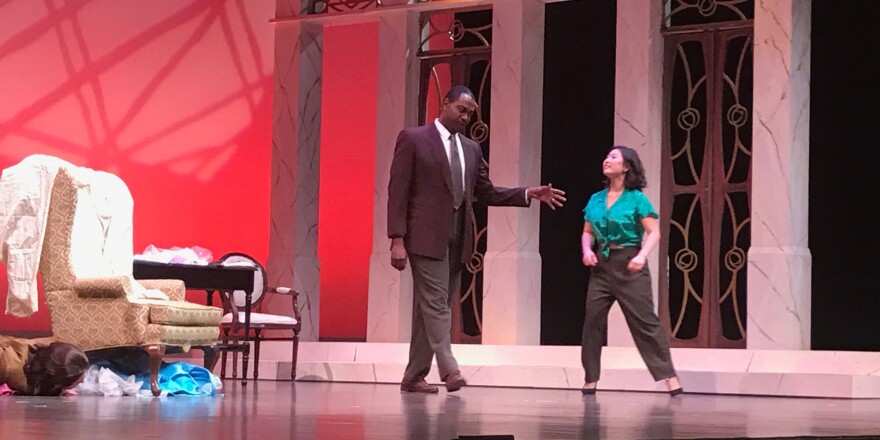It is currently ranked as the 8th most performed opera in the world, according to operabase.com and this week, Mozart’s The Marriage of Figaro walks down the aisle of MSU’s Fairchild Theater.
The MSU College of Music Opera Theater’s description of Mozart’s popular The Marriage of Figaro includes a very timely phrase used in the news of the day: "This enduring tale of class differences and privilege is particularly relevant today in the era of the “one percent.”
Figaro’s director Melanie Helton points out that the opera was written near the eve of the French Revolution. "And so you have a historical battle between the nobles, basically the rich people, and then you had a burgeoning middle class that was tired of being sort of put down and not being treated as equals. You had Rousseau, and the era of, you know, the Natural Man, the Enlightenment. All of these things that had been going on and I think in our current political climate, I think it's particularly relevant when you see people who are considered servants standing up to power." explains Helton.
However, Helton bristles slightly at the fact that many times the stereotypical opera-going audience is thought of being made up of that same 'one percent.' "Oh, I don't think that's necessarily true." says Helton. "I mean, I certainly was brought up very middle class. My father worked for Proctor and Gamble for 40 years and when he was in the Navy, he was a poor boy from Georgia who got a scholarship to Princeton and came home from Italy with all of these opera recordings. He used to mow the grass singing opera. The first time I heard of an opera was [Jacques Offenbach's] The Tales of Hoffmann, so I think it's very much for everyone. I remember a couple of years back when we did [Ricky Ian Gordon's] The Grapes of Wrath, he said 'This is the story of my family.' So, I think more and more it's not for the 'one percent' and I think that's something that always gets a little bit under my skin when I hear people say 'Opera is for rich people.'
[Recording of the cast of MSU Opera Theater's The Marriage of Figaro with cast members Brian Major and Angela Lee, as accompanied by conductor of this weekend’s performance, Maestro Daniel Beckwith. Selection: ‘Crudel! perchè finora’]
"I always find it important to bond with the conductor." says MSU Doctoral student, Brian Major, who plays Count Almaviva in The Marriage of Figaro. "Because our instrument, which is our voice, it's important to us! And it's important to me, just to have that connection and that trust factor. If that's there, I think I can stretch myself beyond the comfort-level that I'm used to and give more when I trust the conductor, and I really do trust Maestro Beckwith."
It took a bit more self-trust for soprano Angela Lee, who plays Susanna in MSU’s production of Mozart’s Figaro, since she is not a performance major, she studies music education. "I’ve done very, very small roles prior to this, but I found out this is— Susanna is the longest soprano role in all of opera." says Lee. "And I just remember tabbing through my score running out of post-its. Having to purchase more, having hand cramps just from translating the first act, and it was overwhelming, at first! But the nerves have gone away and it's just turned into excitement and happiness and rehearsals have been the highlight of this entire semester."
The MSU Opera Theaters production of Mozart’s The Marriage of Figaro opens Wednesday night at MSU’s Fairchild Theater, skips Thursday but returns Friday thru Sunday. More information at music.msu.edu





